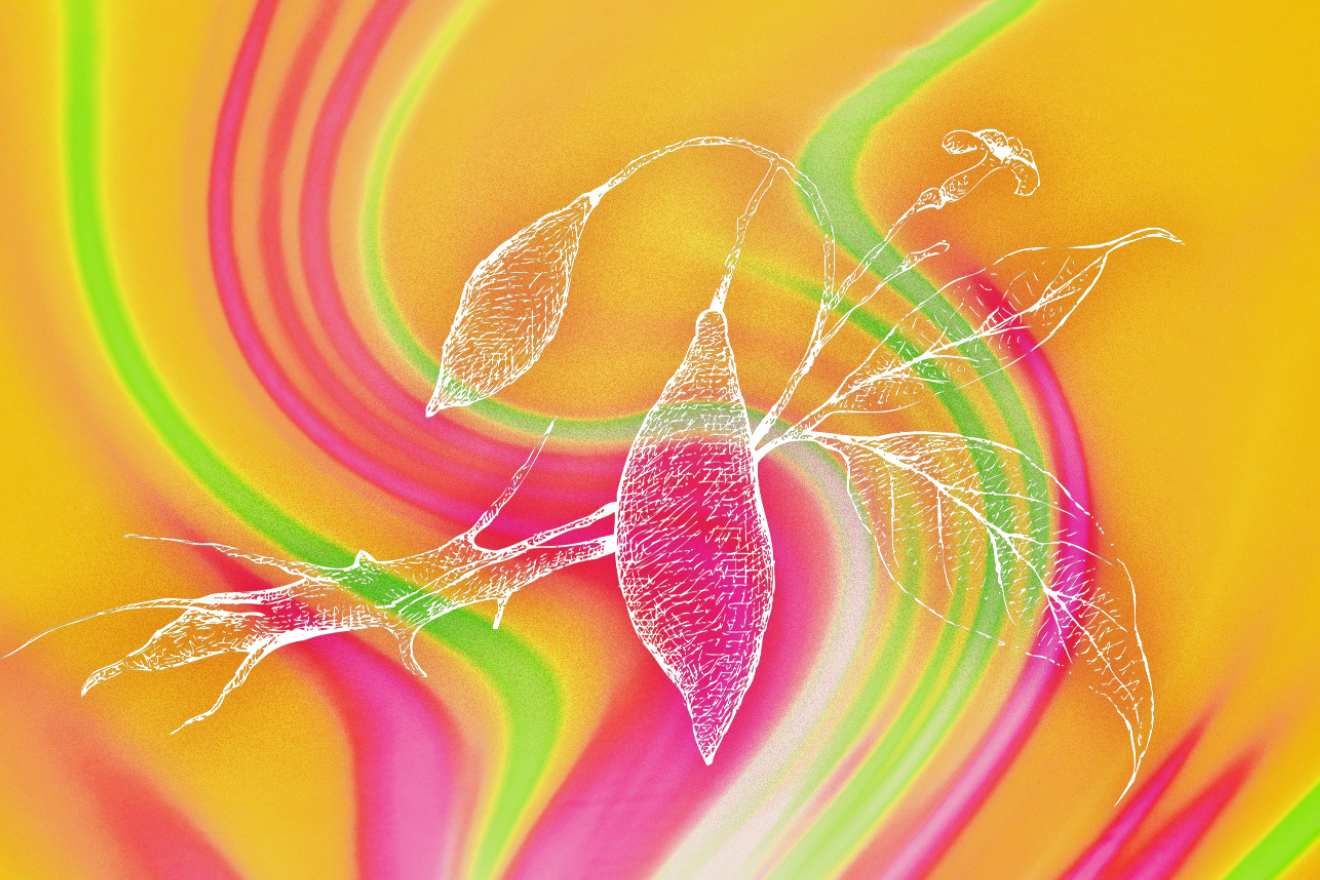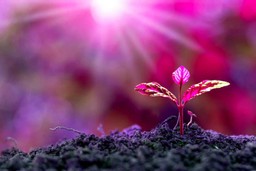A growing treatment option is ibogaine for addiction. Ibogaine is a naturally occurring psychoactive substance found in the root of the Tabernanthe iboga shrub and in the Voacanga africana tree. West Africa’s Bwiti people have used ibogaine for ceremonial purposes for thousands of years.
Ibogaine is most known for its potential in treating addiction disorders and reducing withdrawal symptoms. However, the Food and Drug Administration (FDA) had not approved ibogaine and its use is illegal in the United States and most of Europe. Ibogaine was classified as a Schedule 1 drug in 1970.
Follow your Curiosity
Sign up to receive our free psychedelic courses, 45 page eBook, and special offers delivered to your inbox.This article provides an in-depth look at the use of ibogaine for addiction.
Ibogaine On The Central Nervous System
Ibogaine has not been thoroughly researched; therefore, it isn’t completely clear how it interacts with the brain and central nervous system. Specifically, there is a lack of understanding of its pharmacological mechanism and how it can reportedly lessen withdrawal symptoms and reduce substance-related cravings.
However, it is known that ibogaine creates a psychedelic effect that is longer than other psychedelics such as LSD and psilocybin. In small doses, ibogaine provides the person with the effect of a mild stimulant. With a large dose, the person will have a full-on, often intense, psychedelic experience that can last more than a day, up to as long as 3 days. To achieve a psychedelic effect with ibogaine, the typical dose is 15–20 mg per kg.
When taken, ibogaine acts with various sites in the central nervous system including nicotinic, GABA, dopaminergic, serotonergic, opioid, sigma, glutamate and muscarinic receptors. The research that shows these mechanisms from non-human studies.
For instance, ibogaine inhibits the brain from re-uptaking serotonin, creating a higher amount of serotonin available to bind to serotonin receptors. In addition, an animal study showed that ibogaine can block morphine-induced and nicotine-induced dopamine release in rats. In regards to opioid receptors, noribogaine (the primary metabolite of ibogaine) acts as an m-opioid receptor and k-opioid receptor partial agonist.
Ibogaine May Disrupt Addiction But Does Not Cure It
Currently, there is a lack of placebo-controlled trials that study the effect of ibogaine on humans. There are studies that show promise in using ibogaine to reduce withdrawal symptoms, and drug cravings and support abstinence; however, there is a need for larger, long-term studies with more robust results to demonstrate whether ibogaine is safe and effective in treating addiction.
In 2018, The American Journal of Drug and Alcohol Abuse published an observational study that analyzed opioid detoxification with ibogaine. The study recruited 30 subjects who had a DSM-IV Opioid Dependence. Each research participant was given approximately 12 mg/kg of ibogaine.
Follow-ups were performed at one, three, six, nine, and 12 months to assess the frequency and dosage of opioid use. 15 of the 30 participants reported no opioid use at the 1-month posttreatment follow-up during the previous 30 days. At the three, six and nine months follow-ups, 10, six and 11 participants reported no opioid use, respectively. At the last follow-up, seven participants reported they did not use opioids.
The study concluded that ibogaine has a substantive effect on the treatment of opioid use disorder, specifically for individuals for whom other treatment options have not been effective. An important caveat to consider about the study is its small sample size and the results may not be applicable to a larger population.
In 2014, a retrospective study was conducted in Brazil where ibogaine is unregulated. It looked at the combination of ibogaine and psychotherapy in the safety and efficacy of treating addiction. The researchers analyzed data from 75 previous poly-drug (alcohol, cannabis, cocaine and crack) users.
The results showed no serious adverse effects or deaths; 61% of the subjects sustained avoidance of drug use. Subjects who received a single ibogaine treatment compared to those who received multiple ibogaine treatments reported abstinence for a median of 5.5 months and 8.4 months, respectively.
The difference in the duration of abstinence between those who were treated once versus those who were treated multiple times with ibogaine was statistically significant. The study concluded that under the supervision of a physician and used alongside psychotherapy, ibogaine can be a safe and effective treatment for drug dependence. However, it is important to note that the study also had a small sample size, with only 75 participants.
A slightly larger study looked at the ibogaine detoxification transition of opioid and cocaine abusers between dependence and abstinence. It reviewed the clinical observations and treatment outcomes of 191 self-referred, treatment-seeking opioid and cocaine-dependent participants. Each subject was given an oral dose of 8–12 mg/kg of ibogaine in the form of gel caps. Multi-dimensional craving questionnaires during the inpatient detoxification were used to assess whether ibogaine was effective in reducing heroin and cocaine cravings.
The results of the study showed that ibogaine was effective in blocking opioid withdrawal symptoms, decreasing drug cravings and boosting the mood of those who are dependent on drugs during detoxification. It concluded that ibogaine as a single oral dose under the supervision of medical professionals can be beneficial as part of the detoxification transition from drug dependence to abstinence.
Risks of Ibogaine Use
A safe dosage and appropriate administration of ibogaine are not well understood and/or supported by strong evidence. Therefore, ibogaine should only be taken under the supervision of a health professional.
There are multiple risks associated with ibogaine use, including death from cardiac arrest. Other serious complications include:
- Anxiety
- Seizures
- Nausea
- Dizziness
- Heart problems, such as arrhythmias
- Vomiting
- Increased or decreased heart rate
- Poor balance
- Gastrointestinal complications
- High or low blood pressure
Randomized Controlled Trials Are Required To Determine Ibogaine’s Therapeutic Effectiveness
In 2021, a narrative review that focused on the pharmacological, cultural and psychological aspects of ibogaine was published in The Journal of Psychedelic Studies. A thorough literature search was performed between March 2019 and March 2020. A total of 60 articles were included in the review.
The review showed that the evidence suggesting ibogaine as a treatment for substance use disorder is based mainly on observational studies, preclinical data and data following clinical trials of noribogaine. There are multiple limitations to these studies including a lack of control groups and placebo and that the administration of ibogaine was conducted without medical supervision or standard controls.
Ultimately, the review concluded that randomized controlled trials are necessary for determining whether ibogaine is safe and effective in the treatment of addiction.
Until more substantive research is conducted to explore the therapeutic applications of ibogaine on human subjects, it is unclear the role it plays in the treatment of substance use disorders.
References
- Marton S, González B, Rodríguez-Bottero S, et al. Ibogaine administration modifies GDNF and BDNF expression in brain regions involved in mesocorticolimbic and nigral dopaminergic circuits. Front Pharmacol. 2019;10:193. doi:10.3389/fphar.2019.00193
- Graziano S, Orsolini L, Rotolo MC, Tittarelli R, Schifano F, Pichini S. Herbal highs: Review on psychoactive effects and neuropharmacology. Curr Neuropharmacol. 2017;15(5):750–761. doi:10.2174/1570159X14666161031144427
- Jacobs MT, Zhang YW, Campbell SD, Rudnick G. Ibogaine, a noncompetitive inhibitor of serotonin transport, acts by stabilizing the cytoplasm-facing state of the transporter *. Journal of Biological Chemistry. 2007;282(40):29441–29447.
- Glick SD, Maisonneuve IS. Mechanisms of antiaddictive actions of ibogaine. Ann N Y Acad Sci. 1998;844:214–226.
- Brown TK, Alper K. Treatment of opioid use disorder with ibogaine: detoxification and drug use outcomes. The American Journal of Drug and Alcohol Abuse. 2018;44(1):24–36.
- Mash DC, Duque L, Page B, Allen-Ferdinand K. Ibogaine detoxification transitions opioid and cocaine abusers between dependence and abstinence: clinical observations and treatment outcomes. Front Pharmacol. 2018;9.
- Underwood MS, Bright SJ, Lancaster BL. A narrative review of the pharmacological, cultural and psychological literature on ibogaine. Journal of Psychedelic Studies. 2021;5(1):44–54.







